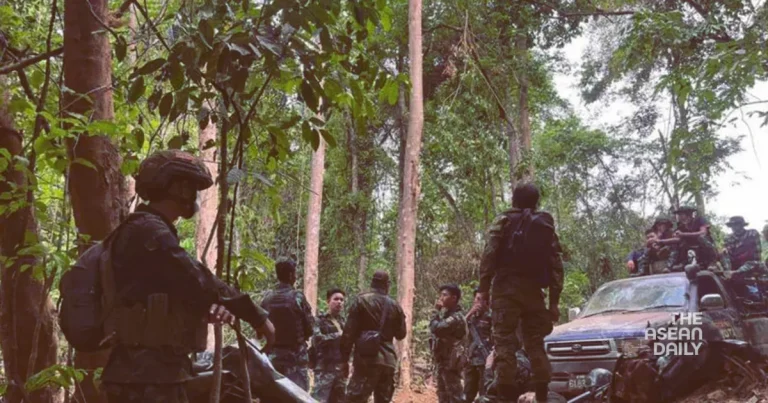20-6-2024 (YANGON) Tensions are escalating in northern Myanmar as an alliance of ethnic armed groups has accused the ruling military junta of repeatedly violating a China-brokered ceasefire this month, resulting in civilian casualties and heightened conflict in the region. The accusations come amidst ongoing efforts to find a peaceful resolution to the long-standing conflicts between the junta and various ethnic armed groups.
In January, Beijing successfully negotiated a truce between the junta and the so-called “Three Brotherhood Alliance,” comprising the Ta’ang National Liberation Army (TNLA), the Myanmar National Democratic Alliance Army (MNDAA), and the Arakan Army (AA). The ceasefire aimed to halt months of intense fighting that had displaced more than half a million people near China’s southern border and allowed the alliance to maintain control over swathes of territory it had seized in northern Shan state.
However, the fragile peace has been shattered by recent events, with the TNLA accusing the junta of launching an air strike on Wednesday (Jun 19) on territory it holds near the ruby and gem-mining hub of Mogok. “In this incident, one civilian was killed and 3 wounded, including a 10-year-old child,” the TNLA said in a statement posted to the alliance’s Telegram channel.
The escalation of violence did not stop there. On Tuesday, the TNLA further alleged that junta troops had launched a drone attack that killed one of its members and seriously wounded four others. The group stated that these attacks were the latest in a series of violations by the junta this month, which included shelling TNLA positions, cutting roads, and restricting the flow of goods to towns under the alliance’s control.
AFP was unable to reach a junta spokesman for comment on these allegations, but the incident underscores the fragility of the ceasefire agreement and the ongoing challenges in achieving lasting peace in Myanmar’s conflict-ridden borderlands.
The roots of the conflict run deep, with Myanmar’s borderlands being home to a myriad of ethnic armed groups, many of whom have been battling the military since the country’s independence from Britain in 1948. These groups have been fighting for autonomy and control over lucrative resources, leading to decades of violence and displacement.
In October last year, the Three Brotherhood Alliance launched a surprise offensive across northern Myanmar, seizing several towns and lucrative border hubs that are vital for trade with China. This offensive dealt a significant blow to the cash-strapped and isolated junta, which has been grappling with various opponents across the Southeast Asian country.
The impact of the conflict has also been felt in the realm of trade, with border trade with China during April to May reported to be down by almost a third compared to the same period last year, according to junta-controlled media.
Last month, China hosted follow-up peace talks between the military and the alliance in the city of Kunming. However, a source close to the MNDAA told AFP that no substantial progress had been made, and the two sides would meet again in the future, leaving the prospects for a lasting peace uncertain.




